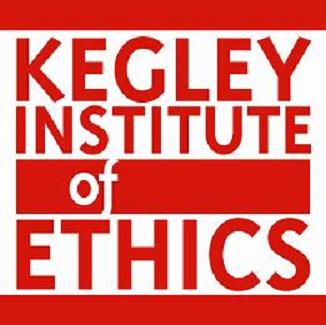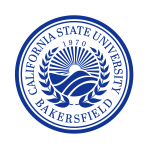KIE Student Fellow Reflections on Ethics and COVID-19
Contributed by 2020-2021 KIE Student Fellow, Brittany Johnson.
 The Kegley Institute of Ethics hosted a panel of medical professionals to discuss ethical issues present in the current pandemic (see full video here). Conversations varied around the sociological and economic long-term impacts of coronavirus. Dr. Nimisha Amin, Dr. Keisha Ray, and Dr. Christopher Meyers conversed with the panelist moderator, Dr. Nate Olson, who serves both as the associate director of the Kegley Institute of Ethics and an associate professor of philosophy at CSUB, on the implications in the healthcare industry. The panelists also addressed individual comments by the audience during an interactive Q&A moderated by KIE associate director, Dr. Olson.
The Kegley Institute of Ethics hosted a panel of medical professionals to discuss ethical issues present in the current pandemic (see full video here). Conversations varied around the sociological and economic long-term impacts of coronavirus. Dr. Nimisha Amin, Dr. Keisha Ray, and Dr. Christopher Meyers conversed with the panelist moderator, Dr. Nate Olson, who serves both as the associate director of the Kegley Institute of Ethics and an associate professor of philosophy at CSUB, on the implications in the healthcare industry. The panelists also addressed individual comments by the audience during an interactive Q&A moderated by KIE associate director, Dr. Olson.
Pediatric nephrologist and Bakersfield native, Dr. Nimisha Amin spoke on the importance of wearing a mask, even as cases may plateau. She shared statistics on how the droplet transfer reduces at rates up to six times higher by a fabric mask more than if one was not wearing a mask. Dr. Amin relayed how wearing a mask and social distancing will be part of the necessary collaborative efforts of the general public to get to a post-COVID future. Dr. Amin also shares with the audience the importance of activity even in the midst of quarantine. The need to “be in nature” can still be fulfilled, according to Dr. Amin, provided that individual safety precautions are taken, such as wearing a mask outdoors and practicing safe social distancing. The key thing to remember is that activity and socializing will combat the ‘stir crazy’ effect we have seen in quarantine, as also mentioned in the opening comments by Dr. Nate Olson.
Responding to an audience question, Dr. Keisha Ray weighed in on the ethics of speaking up to colleagues (in this case, medical staff) when they are not following proper COVID-19 transmission precautions. When addressing the comment, Dr. Ray utilized her background as both a bioethicist and professor to tackle the question of medical professional hierarchies and how to maintain accountability amongst colleagues. Dr. Ray fashioned her answer in a way to best serve the concerned individual, or student, as well as respectfully reflecting public health standards by wearing a mask at all times, even in shared small common spaces. Dr. Ray emphasized the importance of being the example we want to see.
Dr. Meyers remarked on how the low number of cases in his town was negatively impacted by the mass exodus of some from the city to vacation areas. He cautioned that the presence of fewer people does not negate the seriousness or deadliness of coronavirus. As a clinical ethicist, Dr. Meyers works in the hospital setting with both clinical providers and families to ensure ethical treatment is practiced by all. He also commented on the current practice of isolation in treatment and reassured viewers that on the other side of hospital walls, the best care was still being provided to loved ones; and that because of the restrictions in visitation, the hospital would be free to provide quality care without the added worry of spreading the disease.
In conclusion, the guest panelists shared their expertise as to how to make a positive experience out of the resources provided. For those who would like to view the video of the event, see here.





